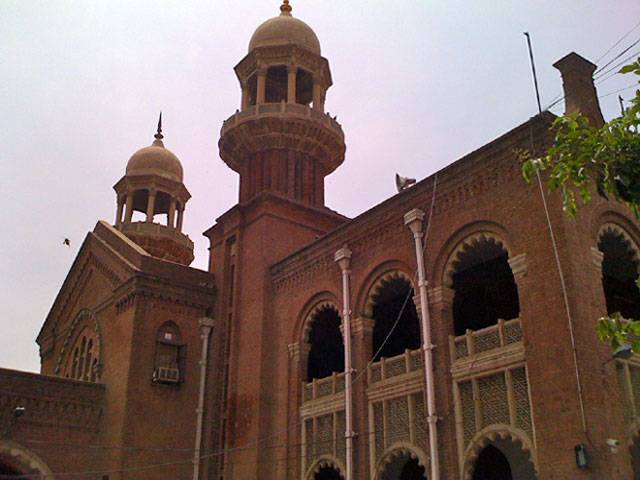LAHORE - The Lahore High Court yesterday reserved verdict on the petitions challenging construction of Orange Line project, holding that its decision would speak itself that justice had been done.
A division bench comprising Justice Abid Aziz Sheikh and Justice Shahid Karim reserved the verdict after all parties concluded their arguments. During the proceedings, the bench observed that the government wanted to protect the project whereas the law is concerned it required protection of historical monuments.
The court heard lengthy arguments of all parties since the case was started in November last year. On Jan 28, 2016, the court stayed construction of Orange Line project at 11 historical monuments including Lakshami building, Shalimar Gardens, GPO Chowk, Aiwan-i-Auqaf, Shah Charagh building, Supreme Court registry, Saint Andew Church, Baba Mauj Darya’s shrine, Ghulabi Bagh, Bhudu ka Awa, Chauburji and tomb of Zeb-un-Nisa on the petitions challenging the project for being ‘threat to the environment and cultural beauty of the provincial metropolis’.
On Thursday, the Punjab government advanced its final arguments on the project. Advocate General Shakilur Rehman presented the final arguments. The law officer said that Unesco had also approved the project and gave a go-ahead to the government to complete the project. He said the government tried its best to maintain everything including environment and historical monuments.
The petitioners’ counsel, however, argued that the Unesco did not pass any order in the favour of the project and it has nothing to do with other historical monuments except of Shalimar Gardens. He maintained that the government was hiding truth about the Unesco report.
Supreme Court Bar Association President Barrister Syed Ali Zafar, who assisted the court as amicus curie in the case, contended that the high court can stop the project if it harms the antiquities or monuments. He held it is a right of the government to construct and develop the public infrastructure in a city to meet it the demands of the people.
“It is not for the court to stop the government from planning, expansion and developing infrastructure and it is an established fact that the courts do not interfere in policy matters,” he added.
However, the SCBA president held, the development must always be sustainable and whenever the government undertakes an urban planning project it must ensure that the project does not harm any protected site.
Relying on the Antiquities Act, 1975, he submitted that this law specifies that all monuments, objects and sites of historical interest are protected from any damage and as such imposes a positive duty on the government while at the same time prohibiting them from allowing any construction within 200 feet of the monument.
He further stated that Pakistan was also a signatory to the Convention under which historical monuments are protected. Zafar also submitted that before issuing any NOC the government should have obtained a report of team of Unesco experts. The verdict reserved by LHC bench will hopefully be announced after summer vacations.






